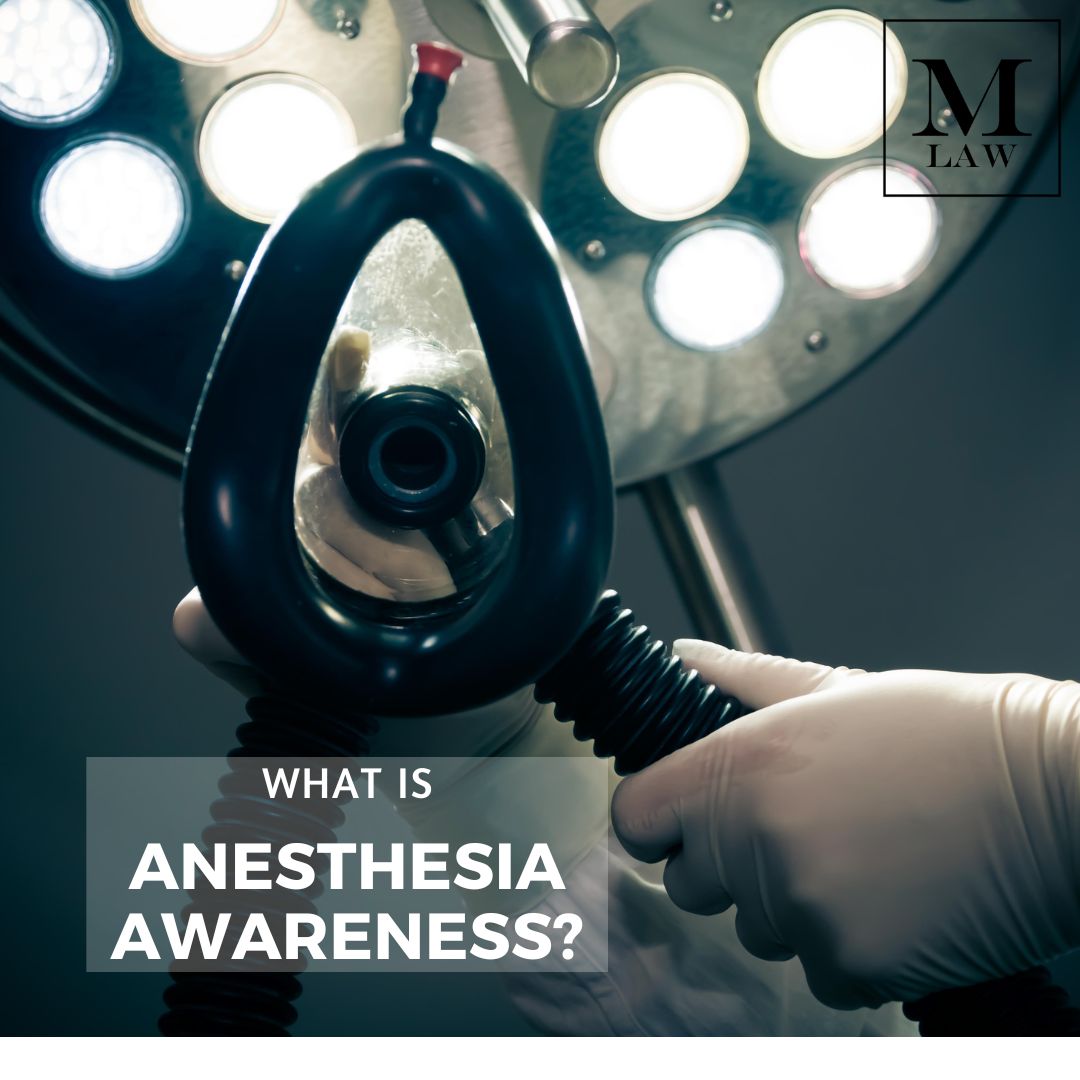Imagine for a moment, you are about to undergo a surgical procedure. You’re worried, but not too scared. Your surgeon has already soothed many of your worries, and you’re confident in his ability to perform the procedure. Besides which, your procedure isn’t particularly grueling, though it does require general anesthesia. Your anesthesiologist enters your hospital room, tells you that everything is going to be fine, then administers your anesthesia. Everything begins to go dark, and you fall into a deep sleep. Then you wake up. You’re now in the operating room. You can see your surgeon, holding a bloody instrument, and you begin to feel the immense pain of being cut open and operated on, all while unable to move at all. That’s anesthesia awareness. And it’s absolutely terrifying.
What is Anesthesia Awareness?
Anesthesia awareness is also referred to as “unintended intraoperative awareness.” It is an extremely uncommon condition in which a patient becomes partially or fully aware during a surgical procedure while under general anesthesia. Despite being physically immobilized and unable to move or communicate, the patient may experience sensations, sounds, or even pain, which can be distressing and traumatic.
How Does Intraoperative Awareness Occur?
Anesthesia awareness is considered a rare occurrence, happening in approximately 0.1% to 0.2% of surgeries where general anesthesia is administered. It can happen due to several reasons, including:
- Medication tolerance: Individuals may have a higher tolerance or metabolize anesthesia medications differently, making it more challenging to maintain the desired level of unconsciousness.
- Error in medication dosage: Calculating the appropriate dosage of anesthesia medications is crucial. If there is a miscalculation or error in administration, it can lead to insufficient anesthesia levels.
- Equipment failure: Malfunctioning anesthesia delivery systems or monitoring equipment can compromise the administration and effectiveness of anesthesia.
- Emergency situations: During emergencies, medical professionals may need to adjust anesthesia levels quickly, which can increase the risk of awareness.
Preventing Anesthesia Awareness
Doctors and anesthesiologists take numerous precautions to prevent anesthesia awareness and ensure patient safety. These measures include:
- Pre-operative assessment: Thorough evaluation of a patient’s medical history, medications, and individual factors helps the anesthesiologist tailor the anesthesia plan to minimize risks.
- Monitoring equipment: Sophisticated monitoring devices are employed to track vital signs such as heart rate, blood pressure, oxygen levels, and end-tidal carbon dioxide levels, enabling continuous assessment of the patient’s depth of anesthesia.
- Anesthesia techniques: Anesthesiologists employ a combination of intravenous medications and inhaled anesthetics, titrating the dosage to achieve the optimal level of anesthesia while keeping the patient unconscious and pain-free.
- Multiple drug approach: Using multiple anesthetic drugs in combination helps reduce the risk of awareness. This approach targets different receptors in the brain, ensuring a more comprehensive and robust anesthetic effect.
- Brain activity monitoring: Advanced technologies, such as bispectral index (BIS) monitoring, may be utilized to measure the patient’s depth of anesthesia based on brain activity, providing additional data for the anesthesiologist to adjust the anesthesia accordingly.
- Communication with the patient: Prior to surgery, patients are often informed about the possibility of anesthesia awareness. This communication helps manage expectations and alleviates anxiety, allowing the patient to express any concerns or fears.
Contact a Medical Malpractice Attorney
We’d hope that everyone reading this article has never experienced this terrible ordeal. However, if you have suffered from anesthesia awareness, you may be entitled to financial compensation. If your intraoperative awareness was the result of medical negligence, you can pursue financial compensation for damages that resulted from this experience.
Get in touch with the medical malpractice attorneys at Merson Law today by filling out our contact form, or by calling us at 212-603-9100.







